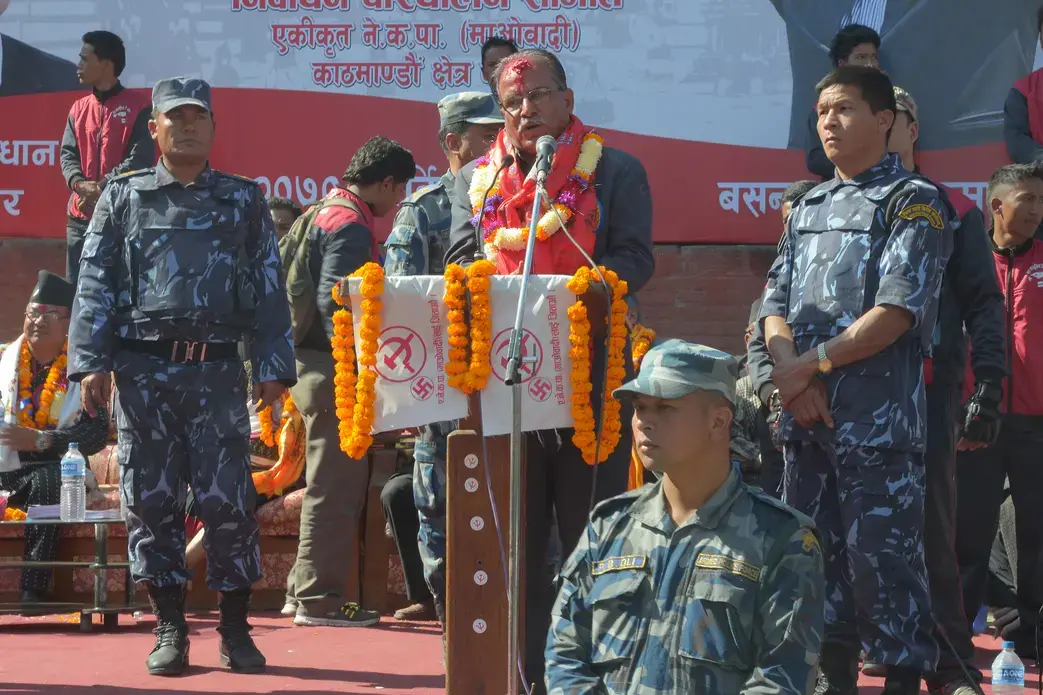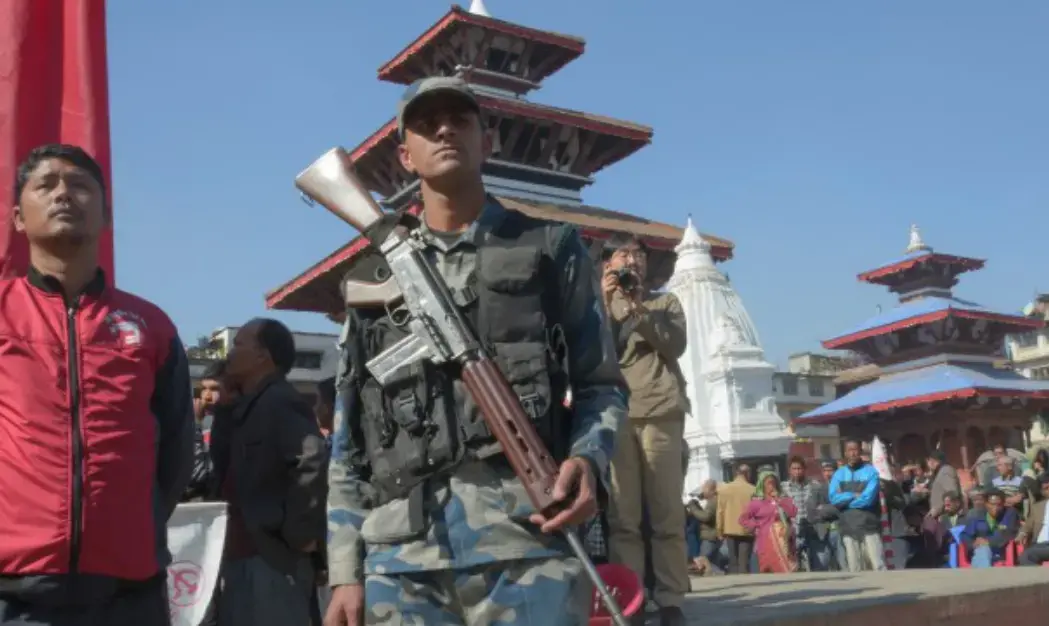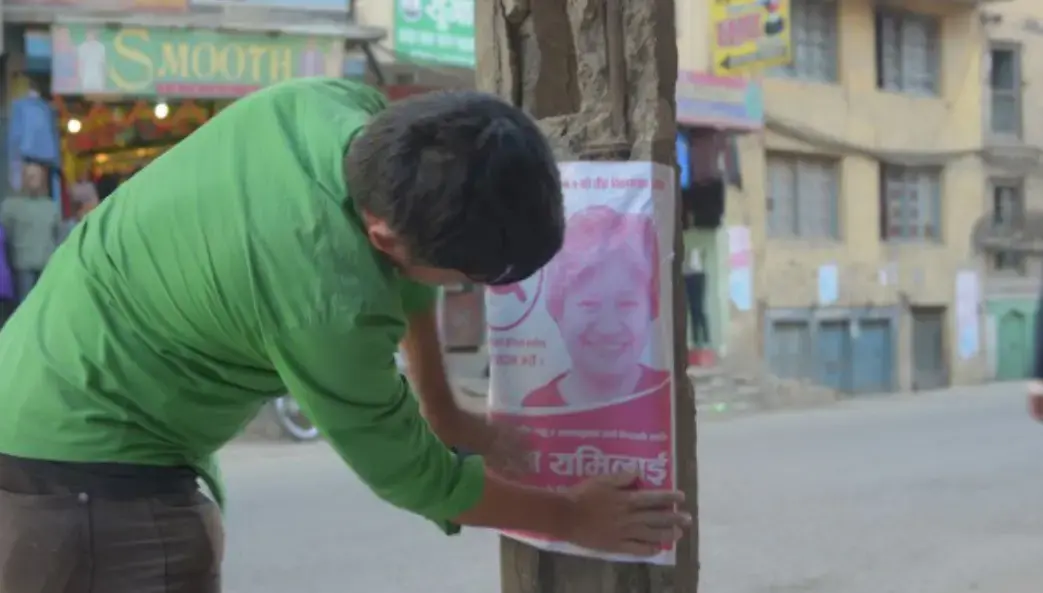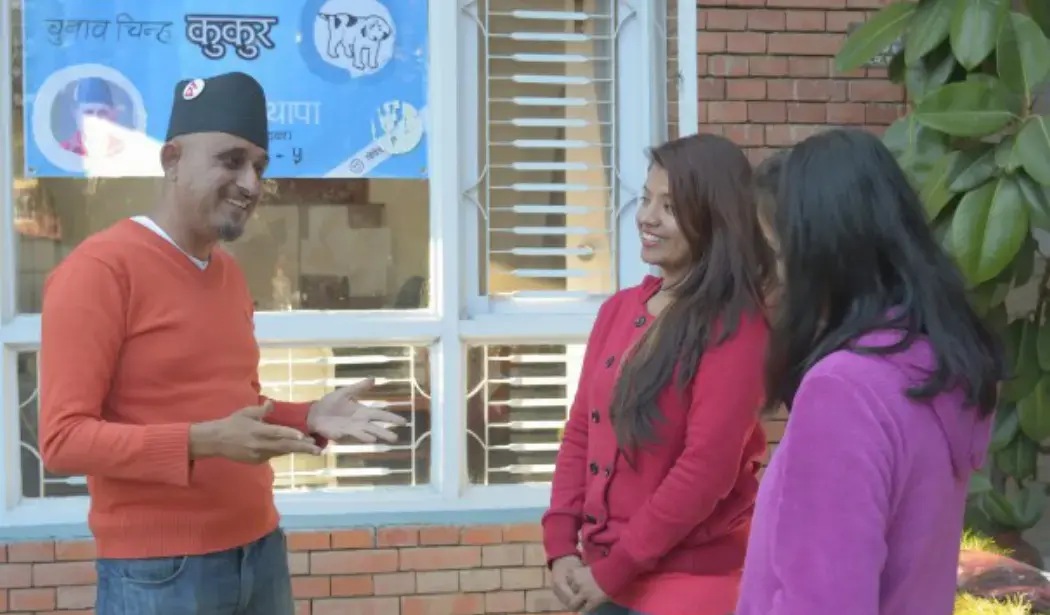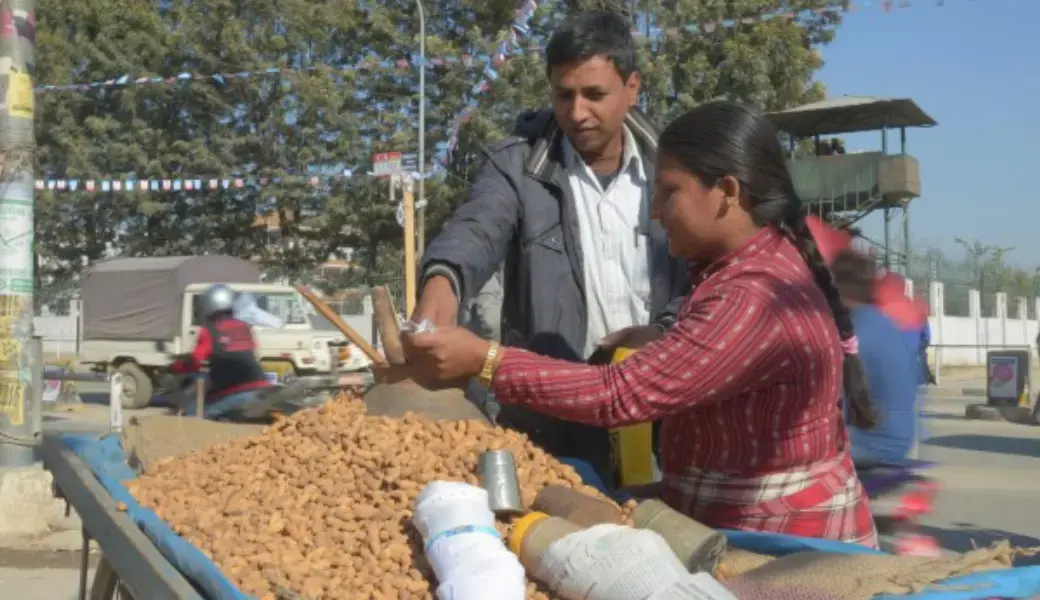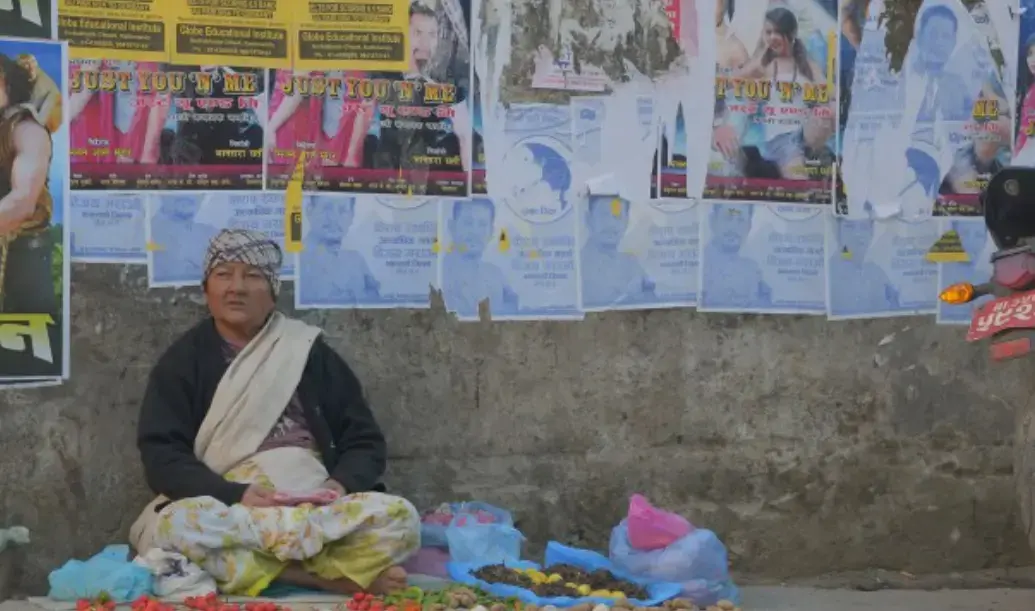KATHMANDU, Nepal — It's been five years since Nepalis voted to transform this country by electing a government led by Maoists who had just ended a 10-year insurgency. But with the economy sliding and the political system gridlocked, voters such as Kopila Dhital say they are fed up with the leftists.
"They led a revolution to fight for the peasants, so I thought they would really uplift our lives," said Dhital, 24, who sells roasted peanuts from a cart at a busy intersection in Kathmandu. "But when they came to power, they were just like everyone else. Why should I vote for them again?"
Nepalis go to the polls Tuesday to choose a special assembly to write a new constitution and try to end a period of political drift. But many here fear that no single party will get a clear majority and that the deadlock will last for years to come.
Although Maoists held the most seats in Nepal's last Constituent Assembly elections in 2008, they lacked a majority and were unable to cobble together a governing coalition or reach an agreement on a new constitution. Since then, the government has changed several times, resulting in bitter divisions among political groups and bringing the economy to a grinding halt at times. Last year, the government could not pass a fiscal budget for nine months, squeezing capital expenditures and weakening growth.
Establishing a stable constitution-writing body will not be easy. There are more than 100 parties competing for the 240 directly elected seats in the assembly. They represent not only ideologies ranging from communism to Hindu nationalism but also dozens of ethnic groups and castes, many of whom were marginalized during the centuries of rule by kings. Since abolishing the monarchy in 2008, this country of 27 million has struggled to figure out how to create a government structure that would incorporate the diverse population.
"People don't have access to a government right now," said C.K. Lal, a political analyst in Kathmandu. "The election would allow a chance to form a properly constituted government."
Seeking a clear majority
As they did in the last election, the Maoists have cast themselves as the party of the poor and insist they can fix the country if they win a clear majority.
In an interview at his residence, Maoist leader Pushpa Kamal Dahal, who goes by the nom de guerre Prachanda, said his party fought hard for the little political change that has taken place in the country, and that is why it should win a clear margin this time.
"When we have majority, it will be easy for us to have strong government and meet the needs of the masses." he said, "And that would create a conducive atmosphere to draft a new constitution."
But Prachanda's opponents say Maoists had their chance.
"They could neither save the Constituent Assembly nor their own party," Gagan Thapa, a charismatic young leader from the rival Nepali Congress Party, said at a rally Friday. Thapa, who is running against a Maoist candidate from a constituency in Kathmandu, was referring to the dissolution of the parliament last year by a Maoist-led government after the Constituent Assembly failed for the fourth time to draft the constitution on deadline.
A few months later, the Maoists split, with the new faction led by hard-line communist leader Mohan Baidhya, who said the Maoists were becoming too mainstream.
Prachanda is quick to defend his party. "Those who are led by Baidhya faction are very dogmatic, mechanical and extremist in their understanding," he said. "They do not want to understand the process of transition that this country is undergoing."
But some voters say they are turned off by that kind of language.
"The Maoists are defining everything in their own terms," said Gyanendra Acharya, 22, a mechanical engineering student, adding that no candidate has impressed him. "They think those who support them are patriotic Nepalis and those who don't support them are traitors."
Kumar Paudel, 23, said that if the country had an option of "none of the above" on the ballot, he would choose that.
"We are in a state of confusion," said Paudel, who comes from a remote village in Sindhupalchok, about 60 miles from Kathmandu. "The Maoists promised a lot of profound changes, none of which have happened."
Fears of violence
In addition to voter apathy, the threat of violence might also keep turnout low. On Thursday, security officials found two pressure-cooker bombs and pipe bombs in the middle of the street in the eastern city of Dharan.
Last week, local newspapers reported that a group affiliated with the hard-line communist faction — which is boycotting the elections — threw molotov cocktails at taxis and buses, injuring dozens.
An alliance of 33 political parties, led by Baidhya's Maoist faction have called for a nine-day strike throughout the country, seeking to stop the elections. The opposition alliance has demanded that the current government should be disbanded immediately and a new government — with representation from all the political parties — should be formed to hold elections at a later date.
Although the government has already dispatched about two-third of its army to provide security at the polls throughout the country, there are concerns that people will stay home on election day. Only 12.5 million of the approximately 16 million eligible voters have registered for the polls, according to U.S.-based Carter Center, one of 56 organizations registered to observe the election.
Highlighting the differences between the mainstream parties and his independent campaign, 36-year-old Ujwal Thapa said he is running to change his neighborhood and does not make big promises to voters.
"Not being able to fulfill their promises has given politicians a bad name," said Thapa, who graduated from Bennington College in Vermont and has picked for his election symbol a dog, a term associated by many Nepalis with incapable politicians.
"We want to change the perception," he said. "We want people to think our leaders should be like dogs — but loyal like dogs, honest like dogs and protector like dogs."



